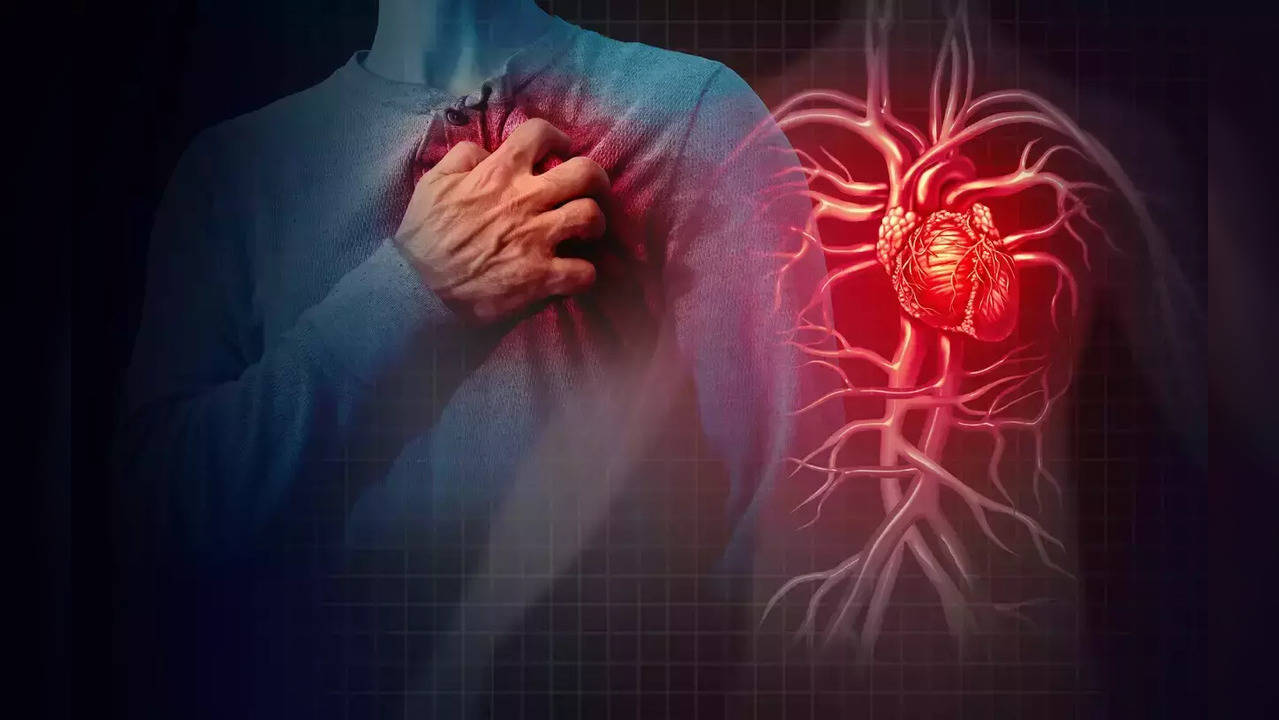Double tragedy as seeing young son die of heart attack during Dandia leads to cardiac arrest of father: Broken heart syndrome explained
A father died of a sudden heart attack due to shock as his young son died of heart attack suddenly while playing Dandia Raas, Garba during Navratri festivities. This kind of heart attack triggered by sudden grief over the loss of a loved one and similar shocks have a name - Broken Heart Syndrome. Here;s a clinical explanation of this cardiac condition that is not always fatal.

Heart attack: Broken Heart Syndrome is not usually fatal but can kill in some instances
Photo : iStock
A 35-year-old youth named Manish Jain (Sonigra) suffered a heart attack while playing Garba and Dandiya during the Navratri festivities in Virar (Palghar district), near Mumbai. This northern suburb to the north of Mumbai, just like the rest of Maharashtra state and Gujarat, has a vibrant Navratri festivities culture and Manish, who had been married only for the last three months, was participating in the Garba-Dandiya Raas dance at the Global City housing complex in Evershine Nagar and suddenly crashed to the ground after suffering a heart attack.
HIs father Narpat Jain Sonigra (65) who is a trader in gold and precious metal and stones rushed the youth to the hospital in an autorickshaw, aided by his other son Rahul. However, Manish breathed his last in the auto, reports Marathi TV news portal Saam TV. Seeing the young son die before his eyes, the father also immediately suffered a heart attack and died while the trio were on the way to the hospital. The father-son duo was rushed to a nearby hospital but declared dead on arrival late that night, said a relative to DNA Mumbai. Police have registered a case of sudden death and investigations are on.
Such a heart attack (as suffered by the father here) is generally termed a case of broken heart syndrome. Takotsubo cardiomyopathy (broken-heart syndrome) is named after an octopus trap — and that's not all that's unusual about the broken-heart syndrome. It MOSTLY occurs almost exclusively in women, especially after menopause, as per Harvard Health.
What is broken heart syndrome?
According to Ilan Wittstein, MD, the program director of the Johns Hopkins Advanced Heart Failure Fellowship Johns Hopkins Medicine, Broken heart syndrome is a condition that can cause rapid and reversive heart muscle weakness, also known as stress cardiomyopathy. But in certain cases, it can be fatal, says a report in the Times of India. Though it has been seen that most people recover from it without any lingering dangers or complications, people can still die from it. The TOI report says that any such emotionally stressing event can trigger one's condition that can cause irregular heart beats (arrhythmias). With not enough blood being pumped to the rest of the body, the person goes into cardiogenic shock. It is important to take immediate action and initiate medical treatment.
What causes broken heart syndrome?
Two kinds of stress — emotional (like grief, fear, extreme anger, surprise) or physical (like high fever, stroke, seizure, difficulty breathing - such as an asthma attack or emphysema - or significant bleeding, low blood sugar etc. — often cause broken heart syndrome. But while most people with this condition experience a stressful event, up to 30 per cent of patients have no identifiable trigger at the time of their initial symptoms.
Who gets Broken Heart Syndrome?
It mostly affects women especially after menopause (mean age range 58 to 77). In the years that a woman is of childbearing age - menstrual age - nature has programmed her to have enough supplies of the female hormone estrogen that protects the heart against any harmful effects of hormones released in response to stress. As the level of estrogen declines with age, women might be more susceptible to the effects of sudden stress, reports Johns Hopkins Medicine.
Disclaimer: Tips and suggestions mentioned in the article are for general information purposes only and should not be construed as professional medical advice. Always consult your doctor or a dietician before starting any fitness programme or making any changes to your diet.
Trending:
End of Article
Subscribe to our daily Lifestyle Newsletter!





Related News





How Does Low Blood Sugar Levels Impact Your Body?

From Allergic Reactions To Liver Damage: The Side Effects Of Taking Dietary Supplements

Near-Death Woman Gets First-Ever Pig Kidney Transplant Plus Heart Pump

What Happens To Your Body When You Perform Ab Exercises Every Day

Daily Aspirin Can Boost Immunity, Prevent Colorectal Cancer, Says Study









